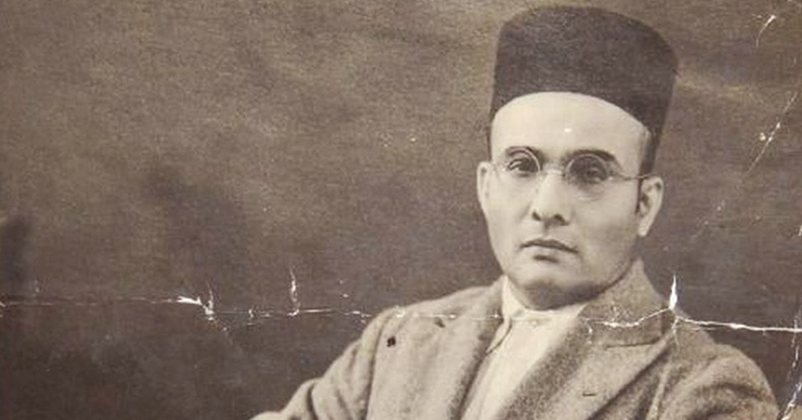26 February, 1966: Veer Savarkar’s Death Anniversary: Honoring a Patriot’s Journey
Total Views |

Today marks the death anniversary of Vinayak Damodar Savarkar, popularly known as Veer Savarkar. He was a prominent freedom fighter, social reformer, and a fierce advocate of Hindutva ideology. Savarkar played a significant role in India's struggle for independence from British colonial rule.
Born on May 28, 1883, in Nashik, Maharashtra, Savarkar was a multifaceted personality. He was a prolific writer, poet, and a staunch nationalist who inspired many with his revolutionary ideas. Savarkar coined the term "Hindutva" to emphasize the cultural and nationalistic essence of Hinduism.
Savarkar's life was marked by his unwavering commitment to the cause of Indian independence. He faced numerous hardships, including imprisonment and exile, for his revolutionary activities against the British Raj. Despite facing severe persecution, Savarkar never wavered in his dedication to the freedom struggle.
1. Revolutionary Activism: Veer Savarkar emerged as a fervent revolutionary during the early 20th century, advocating for armed resistance against British colonial rule. His involvement in various revolutionary societies reflected his commitment to achieving independence through profound means.
2. The First War of Independence (1857) as 'First War of Independence': Savarkar's historical perspective on the 1857 uprising as the 'First War of Independence' contributed to a reevaluation of India's struggle against colonialism. His narrative aimed to inspire a sense of national pride and unity among Indians.
3. Literary Contributions: A prolific writer, Savarkar's literary works, including his magnum opus "First War of Indian Independence," provided a historical and ideological foundation for the nationalist movement. His writings inspired generations of freedom fighters and ignited a sense of patriotism.
4. Advocacy for Hindutva: Savarkar's concept of Hindutva, articulated in his seminal work "Hindutva: Who is a Hindu?," emphasized a cultural and nationalistic identity rooted in Hindu values.
5. Cellular Jail Endurance: Savarkar's unwavering spirit during his imprisonment in the Cellular Jail on the Andaman and Nicobar Islands showcased his resilience and commitment to the cause. His incarceration strengthened his resolve, and he continued to contribute to the freedom struggle even in captivity.
6. Political Activism Post-Independence: After India gained independence in 1947, Savarkar remained politically active and engaged in the nation's reconstruction. He served as the President of the Hindu Mahasabha and continued to advocate for his vision of a strong, culturally rooted India.
Veer Savarkar's death anniversary serves as a moment to acknowledge and appreciate the multifaceted contributions of this iconic figure to India's struggle for independence. From revolutionary activism to literary prowess, Savarkar's legacy endures, reminding the nation of the sacrifices and intellectual vigor that played a crucial role in shaping the destiny of a free India.

